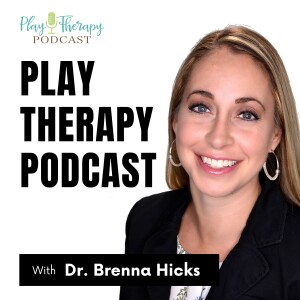
Q&A: How To Best Communicate With Parents, Teachers, and School Counselors When Working With A Child
 2023-05-12
2023-05-12
Download
Right click and do "save link as"
Jeremy from Illinois emailed me with the following question: "I have a six-year-old client who is getting angry and aggressive at school. History of witnessing domestic violence. I have had five sessions with him, and I would say we hit the resistance phase right on schedule. My question is the best way to handle his school counselors calling me and asking for “insight“ in addition to the mom’s anxiety (emailing me daily reports of all his so-called misbehavior at school). What can I truthfully say to parents and school staff about how the things the child learns in the play therapy room are likely to transfer to his home life and school life? Put another way, even if he loves the play therapy room experience, isn’t he still going to be triggered by whatever is upsetting him in school?"
At some point in your career as a play therapist, you will have to work with parents, teachers, and school counselors. It's inevitable. Knowing how best to communicate with those parties is a valuable skill so that you can collaborate effectively, and at the same time, protect your time.
- "Fix it fast" mentality
- Setting expectations
- Clear articulation
Podcast HQ: https://www.playtherapypodcast.com
Play Therapy Training HQ: https://www.playtherapynow.com
Email me: brenna@thekidcounselor.com
Follow me on Twitter: @thekidcounselor https://twitter.com/thekidcounselor
References:
Cochran, N., Nordling, W., & Cochran, J. (2010). Child-Centered Play Therapy (1st ed.). Wiley.
VanFleet, R., Sywulak, A. E., & Sniscak, C. C. (2010). Child-centered play therapy. Guilford Press.
Landreth, G. L. (2002). Play therapy: The art of the relationship (2nd ed.). Brunner-Routledge.
Bratton, S. C., Landreth, G. L., Kellam, T., & Blackard, S. R. (2006). Child parent relationship therapy (CPRT) treatment manual: A 10-session filial therapy model for training parents. Routledge/Taylor & Francis Group.
Benedict, Helen. Themes in Play Therapy. Used with permission to Heartland Play Therapy Institute.
Cochran, N., Nordling, W., & Cochran, J. (2010). Child-Centered Play Therapy (1st ed.). Wiley.
VanFleet, R., Sywulak, A. E., & Sniscak, C. C. (2010). Child-centered play therapy. Guilford Press.
Landreth, G. L. (2002). Play therapy: The art of the relationship (2nd ed.). Brunner-Routledge.
Bratton, S. C., Landreth, G. L., Kellam, T., & Blackard, S. R. (2006). Child parent relationship therapy (CPRT) treatment manual: A 10-session filial therapy model for training parents. Routledge/Taylor & Francis Group.
Benedict, Helen. Themes in Play Therapy. Used with permission to Heartland Play Therapy Institute.
More Episodes
012345678910111213141516171819
Create your
podcast in
minutes
- Full-featured podcast site
- Unlimited storage and bandwidth
- Comprehensive podcast stats
- Distribute to Apple Podcasts, Spotify, and more
- Make money with your podcast
It is Free
- Privacy Policy
- Cookie Policy
- Terms of Use
- Consent Preferences
- Copyright © 2015-2024 Podbean.com






